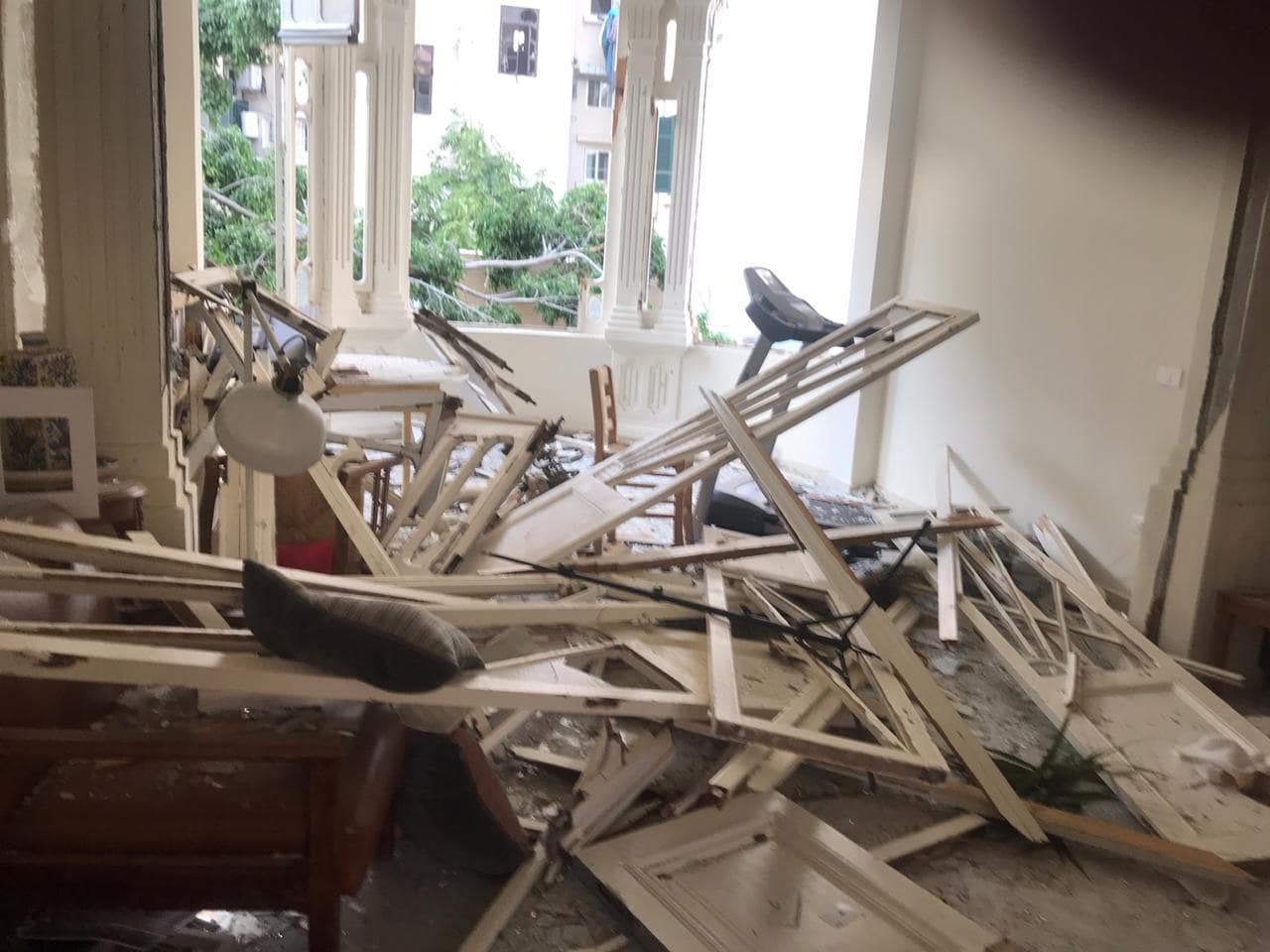This is part 1 of a 2 part series with my friend the writer and organizer Joey Ayoub. We hope this conversation, which blends the personal and political, inspires more discussions on Mental Health in a collapsing world.
Asia Art Tours: I’m struggling with my own personal apocalypse in ways that mirror the main forms of global collapse. To give one example, I continue to play basketball in a body on the precipice of breaking down catastrophically… almost as if I want to deliberately destroy myself. But I do it anyways to feel something. Otherwise I find myself living life through a screen, in friendships and communities who can block me (or vis versa) at any time, in a way that feels endlessly abstracting. I can either erase myself fast or slow, this is my only choice. For so many others around the world, they don’t even get that.
To me this mirrors much of the violence we’re experiencing in the present, either spectacular systemic collapses like the Beirut port explosion, or the gradual erosion of our humanity, like the Neoliberal destruction by Solidére. For you have you also felt the world seeping into your body and brain in ways that mirror or are related to the ways I mention above? This question of quick or slow erasure?
Joey Ayoub: Before being able to answer your question properly, I need to contextualise my own state of mind. Very recently, we managed to bring one of my dogs to Geneva. A friend brought him to Paris from Beirut and I went to pick him up from there. Having him here has already significantly calmed me down, and I am now able to see things a bit clearer than I sometimes did before. I had been very anxious without my dogs because I grew up surrounded by dogs and I don’t really know how to behave for a long period of time without them. Having him here is like having a piece of home with me. In terms of ‘dog years’, he’s lived in Lebanon as long as I have so him being in Europe with me has a bittersweet aspect to it. It’s home, but it isn’t, and maybe can’t be. It’s very real now, perhaps more so than it was before he came. It’s like now I know that I’m in exile. I have another dog who’s too old to travel and so she’s still in Lebanon. I’m hoping to be able to see her before she dies but I don’t know if that will happen. In more ways than one, she represents what’s becoming clearer every day to me about the place I grew up in, namely that it is structured to murder. It really is in the ‘little things’ like this story. Just picture that. It is a risk for me to see my ageing dog not just because I’m politically active, but because every single day is an actual risk in Lebanon. Every day the state is trying to murder all those who aren’t within its clientalist networks, and even murder those within it. So I wanted to mark that change as it would be dishonest to answer without mentioning it.
The ‘facts’ remain the same. My work hasn’t changed much, my research interests develop in the same way, I still listen to a lot of podcasts, read books and enjoy cooking or going on walks and hikes. What has changed is my will to invest in the long-term, which is something I genuinely struggle with. I am hyper-aware of the dangers of climate change, due to my scientific background but also due to my genuine concern over this world that I deeply love, to the point where that awareness – on its own – can be destructive to my self. It had reached a point where I was terrified of learning more about whales because we could risk exterminating these extraordinary beings in my own lifetime. Same goes for coral reefs and various birds and mammals. I even stopped going on hikes for some time because seeing mother nature made me depressed. I stopped watching those David Attenborough documentaries that I pretty much grew up on, collecting the DVDs in a sort of shrine in the bedroom of my home in Mount Lebanon. I felt an immense guilt – and still do – for what we are doing to this planet, a knowledge so crushing that ‘being aware’ was all I was managing to do for some time.
But having my dog here made me – forced me – to realise what we all sort of already know: Self-care is so incredibly difficult. I’m learning this because his presence forces a routine on me. I have to walk him, have to feed him, have to give him attention. It’s pretty basic stuff, but it’s the sort of obligations that become increasingly difficult to do with oneself the harder things get. What I have to do for him, and actually enjoy doing, is what I struggled to do for myself. In my worst days I could barely get out of the house, talk to anyone other than my closed circle of friends and my partner, and even feed myself properly. So here you can see how caring for someone else is also self-care.
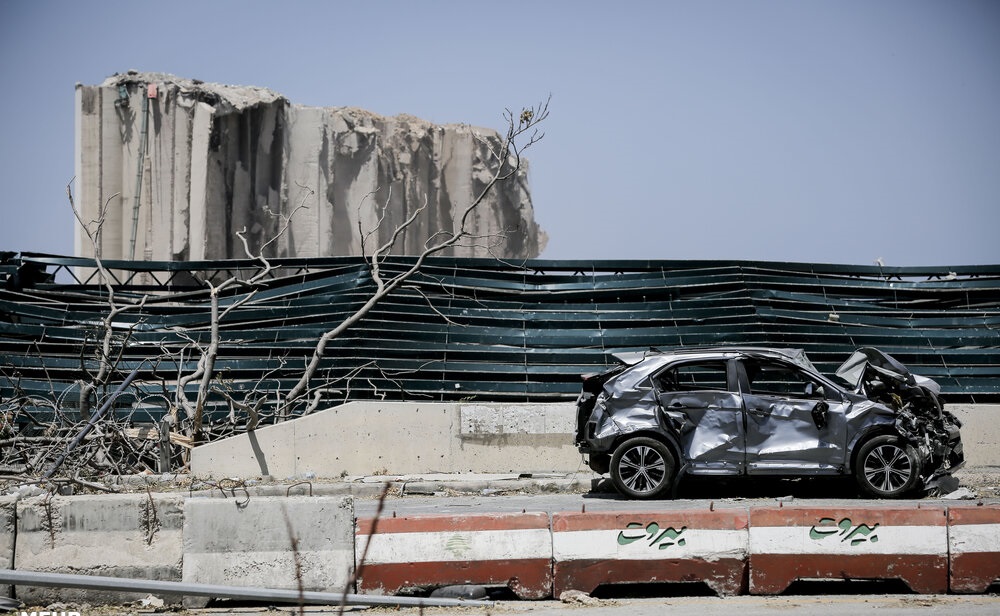
I have been defeated, and I think many others in Lebanon feel the same way, by the ruling establishment. To use a crap metaphor, I don’t know whether they will win the war, but they have absolutely won this battle. They have won it so thoroughly that seasoned activists in Lebanon are profoundly depressed and exhausted. Mental health struggles are so frequent that they have become the norm, worsened only by the fact that most of us still lack the vocabulary to discuss them.
Self-care is difficult to do because we tend to work under the assumption that we need to ‘feel something’ even if that something is bad for us. Here I must emphasise on ‘work’ because I think this also goes back to how we treat the concept of labor, and how we, even those of us who are very critical, tend to underplay emotional labor. I think your podcast is extremely labor-intensive, something which I of course know firsthand. I also know that I had spent several years downplaying my own labor because the overwhelming majority of it went unpaid. I got so ‘used’ to it that I didn’t even know how to seek paid work anymore. It just became ‘easier’ to stick to unpaid labor because the combination of visa restrictions (in the UK), financial restrictions (in Lebanon) and everything else we all sort of deal with – screen time, social media addiction, polarization in society, the disinformation industry etc – were just magnified to such an extreme extent in my case. Since starting our conversation I’ve been ‘leaving’ social media (I’m still on Twitter but I restrict my time there to the absolute minimum) which is how I am able to actually reply to you. It’s been a process in itself, this conversation.
And I also know that we will never fully appreciate the labor that goes into researching, recording, editing etc the conversations we put out in the world. The fact that most of that has also been through a screen, the same screen that I, as a migrant, use to connect with most of my support networks, makes it all the more difficult to properly digest anything. One can witness war crimes, chat with friends, read some article, rant online, play some game, watch porn, and follow a webinar on the same screen and within a single day. We owe it to ourselves to acknowledge that this reality is not something our brains are capable of truly comprehending. The disconnect from our own bodies is something that I think is an inherent component of capitalism, even though capitalism cannot survive (I think) without these same bodies. I also think that we are only barely starting to understand just how much of our actual self and agency we have given up to survive in the attention economy which has been dialed up significantly with social media.
I don’t believe that erasure, whether slow or quick, is ever the only choice. It can definitely feel that way and, as someone who went through a suicidal phase, I know this very well. It’s why I have a semicolon tattoo on my wrist, the same wrist that I tried to end my life with some years ago. But I am very lucky in that I got to experience multiple countries, and this helped me. I was taught at the age of 21 to till the earth by a Quechua speaker in Peru who had to use a language he wasn’t comfortable in, Spanish, to communicate with me and actually take the time to explain to me why we spill a bit to Pachamama before drinking. A Malagasy speaker taught me how to save sea turtles, and the death of a sea turtle under my care at the age of 20 caused such a devastating blow that I still think of her today. This was a lot for some random and young idiot from the Lebanese mountains to experience, but these experiences, among others, are why I never killed myself and why I know I never will. I had to be disconnected from the toxicity that was my life in Lebanon for me to be able to actually deal with Lebanon. I had to truly experience multiple languages to understand that multiple worlds live within me, and not just in some abstract way. That was, and still is, a privilege. This doesn’t mean that I do so perfectly well today either. I am still deeply traumatised, but I know I’m healing, and that is already something. Being able to fix my own broken parts is what’s allowing me to focus more on our world’s broken parts. Our broken parts are also the world’s in the end. I do genuinely believe that whatever we can do to be kinder and fairer to ourselves is what we also need to be doing.
I have been defeated, and I think many others in Lebanon feel the same way, by the ruling establishment. To use a crap metaphor, I don’t know whether they will win the war, but they have absolutely won this battle. They have won it so thoroughly that seasoned activists in Lebanon are profoundly depressed and exhausted. Mental health struggles are so frequent that they have become the norm, worsened only by the fact that most of us still lack the vocabulary to discuss them. Is that really surprising in a country like Lebanon? We are cut off from the world – quite literally, as our only two neighbors are Syria and Israel – and we are run by the same warlords and oligarchs who got their power by slaughtering other people during the so-called civil war of the 70s/80s or by profiting off of the country’s postwar recon/de-struction, especially through Solidere in Beirut. The irony here is that I think the impulse behind Beirut’s neoliberal postwar recon/de-struction follows a logic that has since morphed into a different beast on the internet. It’s what Walid Sadek called, in a different context, the ‘protracted now’. The internet of social media collapses all temporalities into one that is influenced and that influences various for-profit algorithms.
The logic that created Solidere is the same as the logic that created Hezbollah, just as the militias that allied themselves to Israel committed acts of savagery similar to the ones committed by militias allied to Syria. Although various analysts will try and persuade you that the multiple forces at play in Lebanon are inherently different, that is simply not true. Their differences come from the specific capital they currently own, not from any radical imperative. Hezbollah is far more dangerous today than the Lebanese Forces (LF) because they have more power, not because the LF’s potential is any less murderous – and same for the rest. It really is that simple. There was a time during the civil war when it was the LF that outdid other militias/parties in its savagery. From the perspective of a Syrian refugee, there may not be much of a difference between the two, given how similar they are in their supremacist ideologies. These are the concrete forces that have forced my own world’s erasure over a period of nearly three decades (longer for my parents and grandparents). What they have done is nothing less than put in motion a slow-paced erasure – I hesitate to use the word extermination, due to the more brutal examples ongoing in Syria and Israel/Palestine right now – with the complete complicity of this so-called ‘international community’ which assisted them in the looting of our financial reserves.
So what am I saying with all this? A bit of rambling, as always, but there is enough coherence to make the following point: you are not alone in this world. My impression of you in the many months I’ve known you is that you clearly experience more than a lot of people. It is one of those things I can recognise in others, one of my superpowers. Your pain is valid but it cannot be meaningful. Overcoming it is what is meaningful. I will always be grateful that I never had the ‘courage’ to kill myself, as I have since developped the courage to face this horrible and wonderful world head-on. I am so painfully aware of things that are probably too difficult for anyone to handle – myself included – on their own. At this point, I feel like I have to. I owe it to other people, especially those much younger than me, to do much more than what I’m currently doing, and always strive to do more. The difficulty, as already mentioned, is finding the balance.
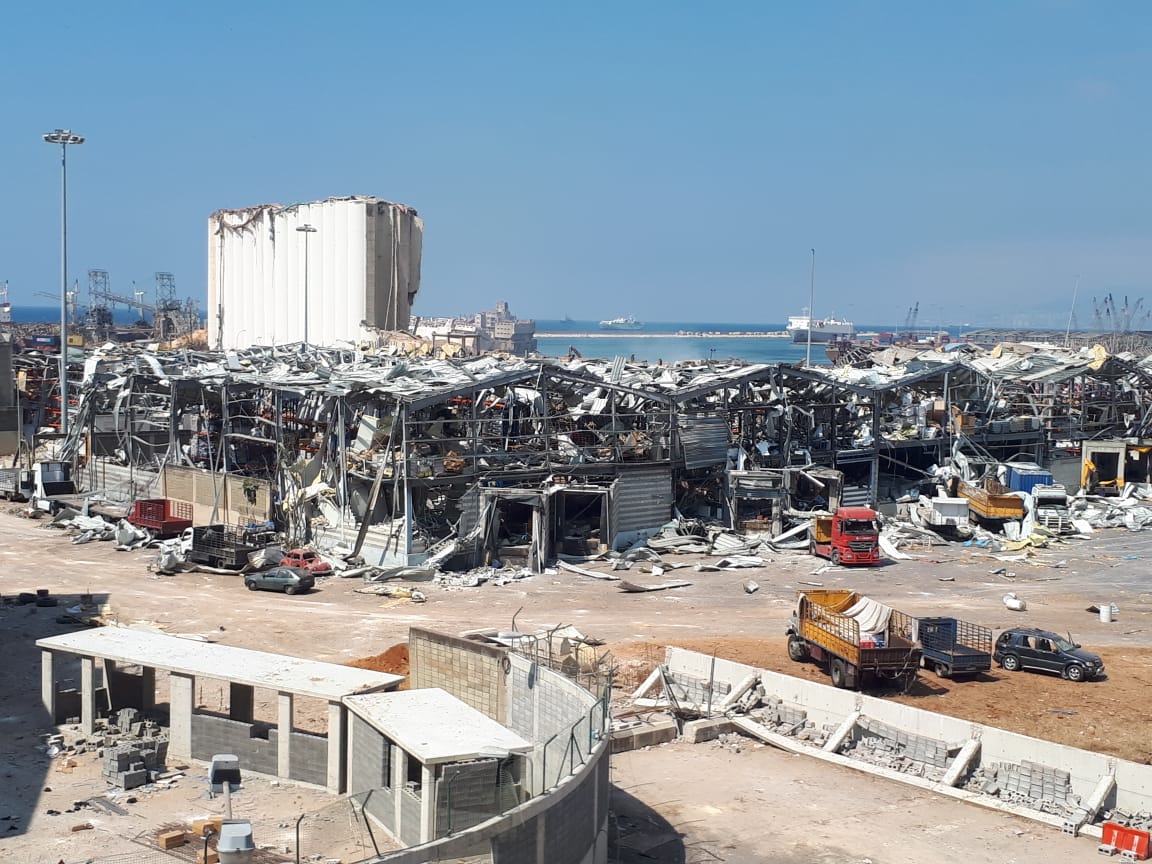
I am still deeply traumatised, but I know I’m healing, and that is already something. Being able to fix my own broken parts is what’s allowing me to focus more on our world’s broken parts. Our broken parts are also the world’s in the end. I do genuinely believe that whatever we can do to be kinder and fairer to ourselves is what we also need to be doing.
Asia Art Tours: One of the reasons I believe we continue to have collective tragedies is that our grief is still individualized. The fiction of the nation to me feels so naked in this moment of Covid-19, where particularly for the US (among the most skilled at collective jingoistic propaganda) there has been nothing in the way of collective grief. The numbers of dead remain numbers and I and other ‘americans’ continue to feel isolated from the departed.
For what’s happened in Lebanon, do you feel there is a sense of collective grief? And as these apocalyptic events keep happening globally, with more and more regularity, how will collective grief be crucial to making sure we reject this as our new normal? (Unless of course we can stop the many headed hydra of capitalism, racism and the nation state, in which case a better future may be possible)
Joey Ayoub: There is a sense of collective grief in Lebanon, more so than in the US at the moment in any case. Part of that is because Lebanon is so incredibly small, roughly the size of Connecticut. Virtually everyone I know was affected by the August 4th explosion, or know someone who has, for example. It’s not uncommon to find random Lebanese outside of Lebanon and find some distant connection to your family or friends. If your grandfather was from Mount Lebanon he’s likely connected to my family or my neighborhood or networks. There is a very practical side to this obviously: in such a small environment, it is in your best interest to care about others. This is true everywhere, but in places like the US where polarisation is especially toxic these things are forced out of most people’s consciousness.
At the same time, I also feel like the grief was highly individual in Lebanon, or individualised, because we are robbed of any sense of a ‘collective’. That is ultimately what sectarianism does and how it propagates itself (same for nationalism, patriarchy etc). Even though the explosion affected people from every sect and nationality, we immediately saw Christian sectarians say that the suffering is primarily Christian, and Lebanese nationalists and xenophobes were denying the right of Syrians and others to mourn their own dead. A more recent explosion in the south of Lebanon was immediately sectarianised as happening in the ‘Shia area’ and sectarian clashes between Sunnis and Shias are never too far from below the surface. In this context, mourning collectively is difficult, whether between Lebanese generally or even just between those who live in Lebanon, Lebanese and non-Lebanese. The moments after the explosion were crucial. There just wasn’t enough pushback against the xenophobes and the sectarians, not because there aren’t enough anti-xenophobes/sectarians in the country but because the latter are so exhausted.
The notion of a ‘collective’ should be deconstructed as well here. I don’t believe everyone who experienced the explosion experienced it in the same way. Perhaps in the moment and its immediate aftermath that was true, but once the dust settled, so to speak, those who are already equipped with sectarian narratives simply used them to suit their purposes. When complaints were thrown at the president, who had no real response after the explosion other than saying it’s not his fault, and who has rejected any meaningful investigation, they just doubled down and came to his defense. Sectarianism in Lebanon has survived a revolution, a global pandemic and a monstrous explosion. Its adherents will not change their minds any time soon. Their own kids are being forced to flee their country – and they are helping them do so – while they continue to support the same warlords they’ve been supporting since they were teenagers. I’m sure this is no longer an alien phenomenon to Americans who oppose Trump and who are still baffled at how absurd his supporters are. These things don’t baffle me anymore. They’ve become so normalised – despite not being ‘normal’ at all – that I now just skip to the explanations when available.
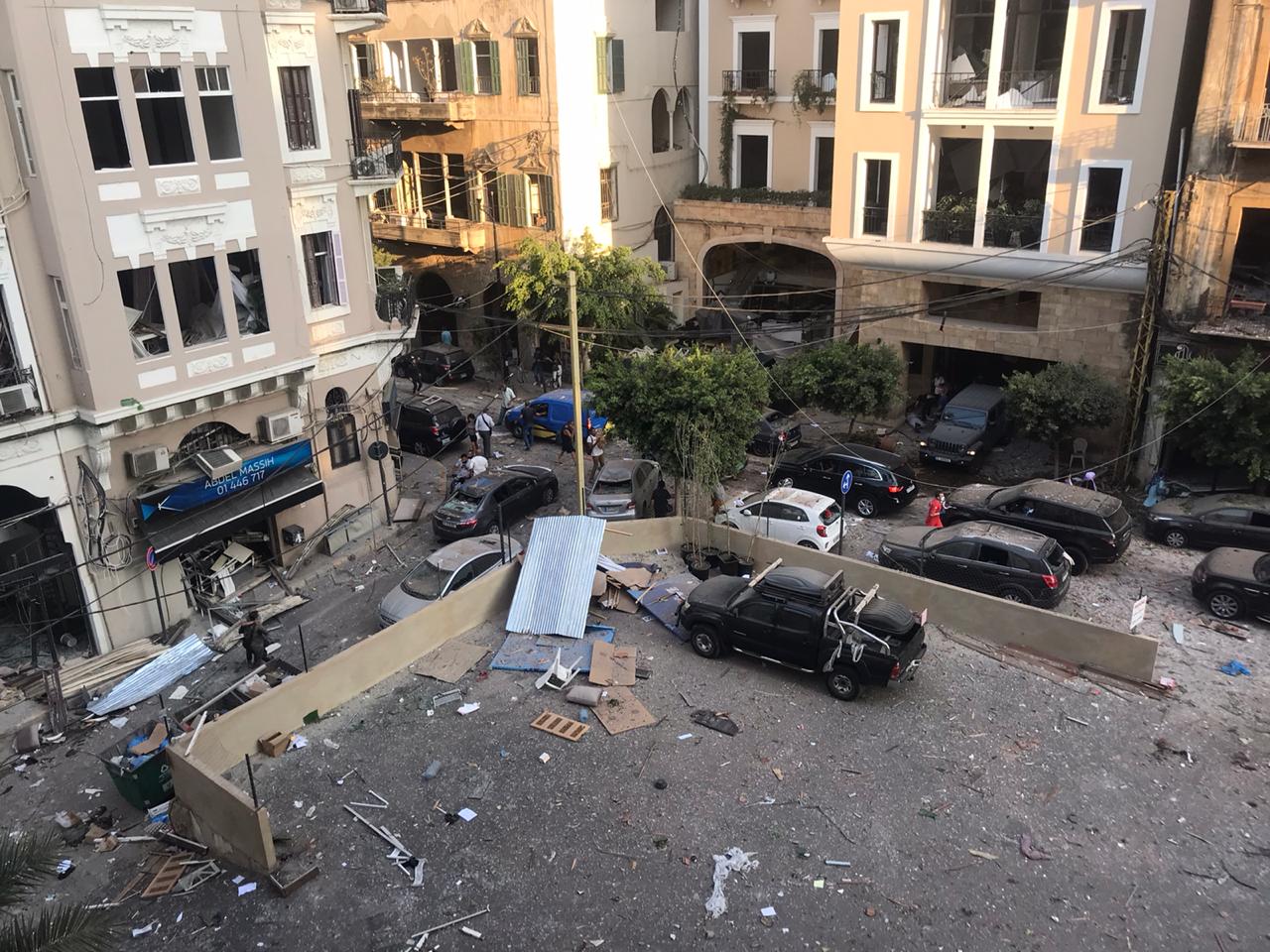
The notion of a ‘collective’ should be deconstructed as well here. I don’t believe everyone who experienced the explosion experienced it in the same way. Perhaps in the moment and its immediate aftermath that was true, but once the dust settled, so to speak, those who are already equipped with sectarian narratives simply used them to suit their purposes.
Regarding the question of the nation state more broadly, I think one of the mental traps we get into is assuming that we must know ‘what to do’ in the absence of nation states, that we must have an alternative already ready. While I would always encourage as many people as I can to try and imagine these alternatives, it is not easy to do. The oft-quoted “it is easier to imagine an end to the world than an end to capitalism” is to me a self-evident truism. This is why we have so many apocalyptic movies that simply assume either the aftermath of capitalism or us being permanently stuck in its worst manifestation. It is such an extraordinary waste and I think it even makes it part of the reason why it’s easier to imagine the end of the world than something as relatively simple (compared to an ‘actual’ apocalypse) as humans replacing a human-made economic system. It shows a profound lack of imagination that is only reinforced by our capitalist reality, and in turn reinforces it. To paraphrase the queen of sci-fi, Ursula Le Guin, capitalism today has a similar allure to the divine right of kings. Using that example, so much of today’s discourse simply assumes that those kings and queens are where they are because they were appointed by some religious or natural law. I view the inability to imagine a world with no borders or a world without patriarchy or without nation states to be within that same tendency. It is why the very best of speculative fiction also imagines alternative systems to our current one through careful world-building. For that matter, it is the same failure as when we see alt-imperialists claim to be anti-imperialists while centering themselves in any analysis, a reality made possible by that very imperialism they supposedly oppose. The irrelevance of our lives – those of us from the ‘global south’, the ‘periphery’ – is what allows these alt-imperialists to be ‘anti-imperialists’ in the first place. Otherwise they would have to deal with our realities just as we are forced to deal with theirs.
I’m actually curious as to what you believe should happen for grief in the US to be more collective, beyond the easily-instrumentalised/militarised grief like the one that followed 9/11, the sort of grief that we should have seen following hurricane Katrina for example, or the murder of George Floyd. And to add to that, is collective grief even desirable? Personally I think it is largely a numbers game. We need enough people to feel that grief, not everyone. Also, I’ve been wondering lately about the ‘purpose’ to grief, other than it being the natural reaction following a loss. I don’t know whether grief in itself can motivate people in the way I think we must because what is needed to face this world’s problem requires so many of us to be in near-total emergency mode, which I’ll get into more in your question on the ‘apocalypse’ below. This is largely a reflection on the conversation I had with Andrew Arsan on Lebanon – after reviewing his book with the depressingly accurate title of ‘Lebanon, our painfully ordinary country‘ – during the October uprising. He had described the revolutionary potential of hopelessness, something which I had initially agreed with but which I am now having doubts about. I think hopelessness can shake things up, but I don’t know if it can do much more than that on its own, especially long-term. I feel the same way about grief.
To paraphrase the queen of sci-fi, Ursula Le Guin, capitalism today has a similar allure to the divine right of kings. Using that example, so much of today’s discourse simply assumes that those kings and queens are where they are because they were appointed by some religious or natural law. I view the inability to imagine a world with no borders or a world without patriarchy or without nation states to be within that same tendency.
Asia Art Tours Ever since I was young, I’ve confused apocalypse for abolition. That the destruction of physical structures was the same as the abolition of the abstract structures that built them. In other words, a hurricane can destroy a gentrifying apartment, a wildfire can consume the office of a private equity firm, an earthquake can topple a colonial statue, but these do not ABOLISH the abstract forces of capitalism and racism that are destroying the earth and whom spawn these physical structures.
Have you also experienced similar confusion about the differences between APOCALYPSE (a horror that destroys the concrete manifestations of abstract violence… but leaves the abstract violence intact) and ABOLITION (a generative process that takes longer but works to destroy the abstract systems that cause the concrete violence)? What for you is the difference between abolition and apocalypse?
Joey Ayoub: Anyone who thinks there’s no difference between apocalypse and abolition should visit Lebanon. Our country witnessed one of the worst explosions in modern history and the ruling classes are still comfortable in their halls of powers. We could quite literally see another mass exodus, which wouldn’t even be our first, and they will be left untouched. The ‘international system’ will be indifferent to that, except of course if enough of us are desperate enough to try and reach Fortress Europe’s shores. A system doesn’t collapse because it should collapse, and the structures that make that system possible don’t get abolished because they cause so much suffering. If that were the case, we would have never needed for abolitionist movements as the systems that need to be abolished would have had within them the seeds of their own abolition. That’s partly true in itself I should say, but there’s no law of nature saying that this has to go in a certain direction and not in another. This is one of my issues with dominant -isms on the left such as Marxism (though not all forms) and with the educated left more broadly, the one that sometimes feels like it is spending its entire time on social media these days. I think they make too many assumptions of how entire groups of people – the working class, the underclass, the precariat, the wretched etc – are ‘supposed’ to act in a certain situation, as if humans are nothing more than cogs instead of complicated, messy, individuals in specific contexts at specific times.
I mentioned ‘emergency mode’ above which is what I consider the necessary response to our problems, the sort of emergency mode that climate scientists are urging us to get into. This likely requires a mix of pragmatism and idealism, to be very grounded in the facts on the ground (knowing the facts on carbon emissions, deforestations etc) while rejecting their continuity when doing so leads to a catastrophe. In other words, we need to be accepting the reality of reality while actively rejecting it in favor of a better reality. It’s like what Yannick Giovanni Marshall told you on your podcast, something I fully agree with. Using the example of the colony, he asks himself whether doing X or Y contributes to dismantling the colony or not. It’s a litmus test. It doesn’t mean that you will always live up to that standard, but it anchors your actions. This is how I view the climate emergency, and it colors almost everything I do, from what I eat to how I travel to how I interact with people and how I engage in ‘casual’ conversations. I genuinely believe that doing anything less than treating the climate emergency as an emergency is profoundly immoral, with horrifying consequences that our brains can barely conceptualise.
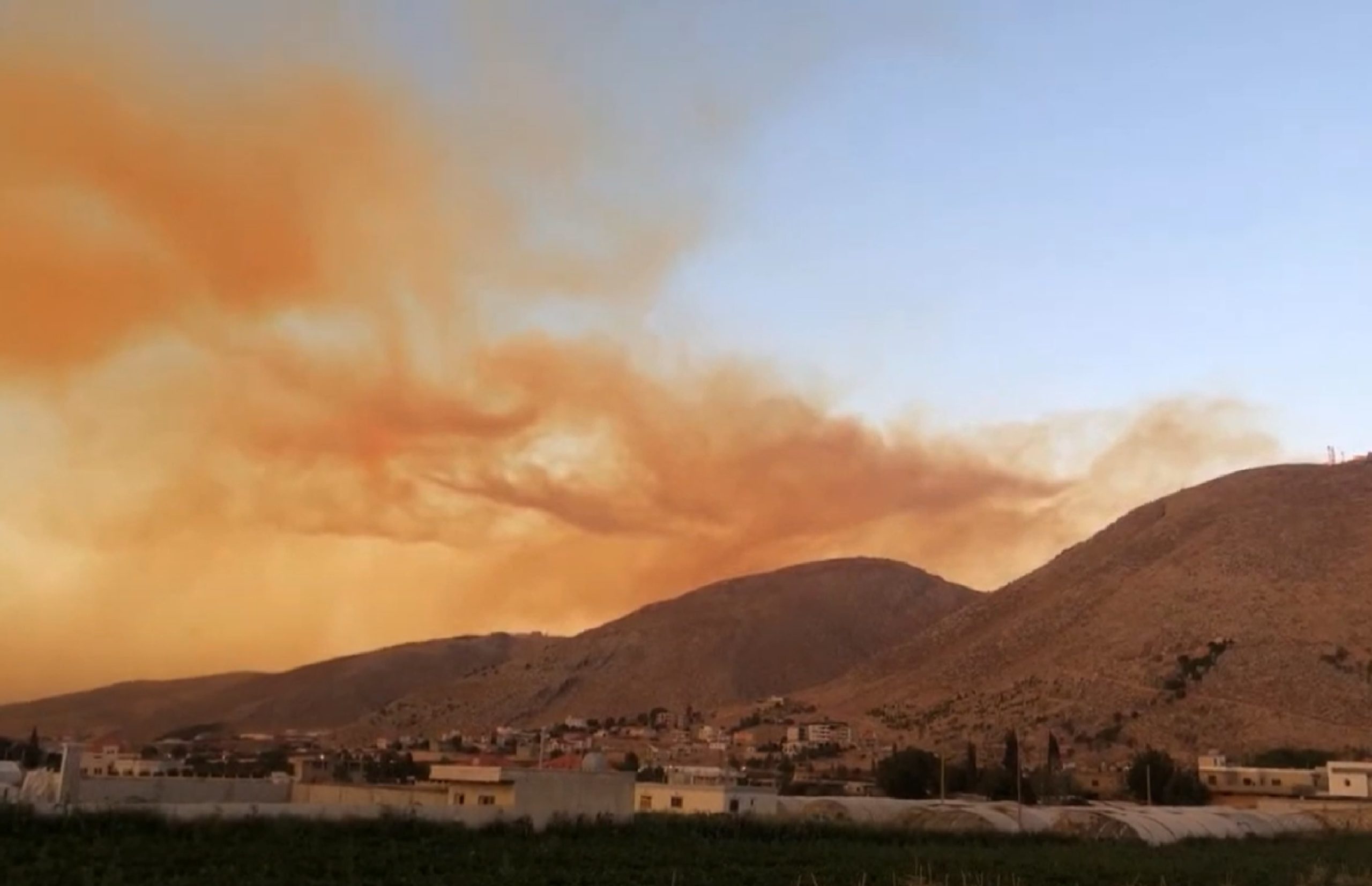
I mentioned ‘emergency mode’ above which is what I consider the necessary response to our problems, the sort of emergency mode that climate scientists are urging us to get into. This likely requires a mix of pragmatism and idealism, to be very grounded in the facts on the ground (knowing the facts on carbon emissions, deforestations etc) while rejecting their continuity when doing so leads to a catastrophe. In other words, we need to be accepting the reality of reality while actively rejecting it in favor of a better reality
So is the climate catastrophe the apocalypse? It can be. Is it abolition? No. It can be both, but that is both unlikely and undesirable. I don’t want a ‘liberated’ humanity living on the ashes of its destruction. I think that’s the closest conclusion large parts of the left have de-facto reached, whether implicitly or explicitly, the sort of thing fueling either accelerationism or more ‘moderate’ cynicism, and I wholeheartedly reject that. We can do better, and we can learn from those who have actually gone through their own apocalypse long before us. I’m referring here to the indigenous peoples of this world, at least many of the activists and elders and water protectors among them, who have categorically already concluded that which we are still, by and large, too cowardly too conclude: that we are borrowing this planet from future generations, that we are inheriting it from previous generations, and that we owe it to the natural world and to ourselves to deconstruct and end the mess that we are created.
This is why I am an advocate of degrowth, and why I don’t think any long-term solution is possible as long as we are obsessed with the notion that everything everywhere has to continue ‘growing’ at all costs. I honestly don’t find it meaningful that the resources of the destroyed natural world is equitably redistributed among the individuals of the destructive species rather than ‘unjustly’. I fully agree with the most basic causes on the progressive left, but they are not enough in themselves. We’ve got to do better than that.
For more w. Joey Ayoub, listen to his podcast: The Fire these Times. You can also check out his writing at numerous publications and his own blog. Links are here.
All photos are from Wikimedia Commons.

